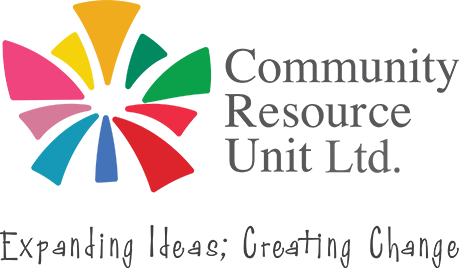This edition of CRUcial Times focuses on the theme of "What is needed for a change in thinking".
This edition contains the following articles:
Editorial
Margaret Rodgers
From the president
Matt Stone
Changing Mindsets
Martin Elks began his career as a psychologist for the Victorian government before completing a PhD in disability studies at Syracuse University. He has since worked as a behavioural specialist and in the areas of self-determination, school inclusion and advocacy. Martin and his wife Darcy have 3 children. They have remained vigilant that their daughter Mary be actively involved and included in her community with a variety of roles including work.
In this article Martin explores the influence of mindsets and why they must be considered in any change effort. By outlining common mindsets in relation to disability he shows how mindsets shape systems, create their own legacy and define what is considered possible in the lives of people with disability.
Sharing life in community: the value of friends and partnerships
Dianne and Greg Exelby live in the North Queensland city of Townsville. Their son Scott was born with significant physical and developmental disabilities and they were told he would never live a ‘normal’ life. Having rejected this prognosis Greg and Dianne have worked together to ensure that Scott has the life they know he deserves.
In this article Greg and Dianne explore how the support of their family, friends, support services and community have enriched Scott’s life. Their story is testament to the value of holding a vision, choosing the ordinary and embracing the gifts available in the community.
SRV, Change and good lives
Greg Mackay has an extensive history in human services and has worked for a range of government and community agencies. He is currently the president of Values in Action Association (VIAA) Inc., a community organisation that promotes the use of Social Role Valorisation (SRV) as a way of understanding how organisations might best orient themselves to the people using human services.
In this paper Greg explores the history of SRV as a framework and the legacy of SRV that exists in Queensland today. He highlights how it is essential to have a sufficiently robust framework for change to ensure meaningful change is created. Finally, Greg shows how SRV offers this and much more to anyone looking to create positive change in both the lives of people with disability and the services invited to assist them.
Taking a deep breath and moving forward. Transforming Milparinka
Frank Crupi is currently the Chief Executive Officer of Milparinka, a disability service in Melbourne which is undergoing a major change process. It is transforming from a traditional group model of support to working in partnership with families and individuals one person at a time in individualised and self-directed supports.
In this article Frank explores the early days of this change at Milparinka; its inspiration, how it redefined quality and how it made Frank question the truth of his words. This article is based on a presentation Frank did at the 2012 Family Advocacy NSW conference – “The Odyssey, from getting a service to getting a life”.
Possibility, peers and the speak of change
Libby Ellis has a long history in the community living movement. Having grown up with her brother Matthew living in a hostel and then group homes, her family made the decision to move Matthew in to his own home in a community of his choosing. Libby is the founder of InCharge, which works with people with disability and their families to create a vision for a meaningful life with possibility, potential and where people are able to direct their own support towards their own goals.
In this article Libby builds on the metaphor of a ‘charge’ ; “sparking a fire” to inspire a new vision of change that is more achievable and less of a leap into the abyss. She highlights the importance of connecting with others, embracing possibility and taking ownership of this new and richer way of looking at what change is.
